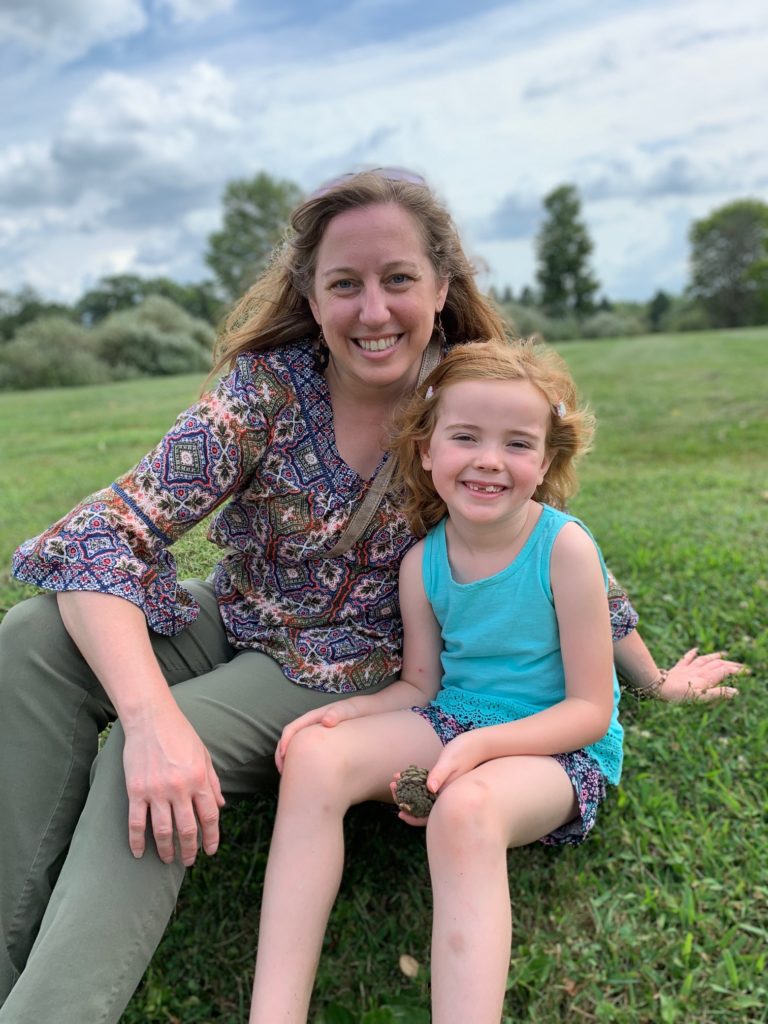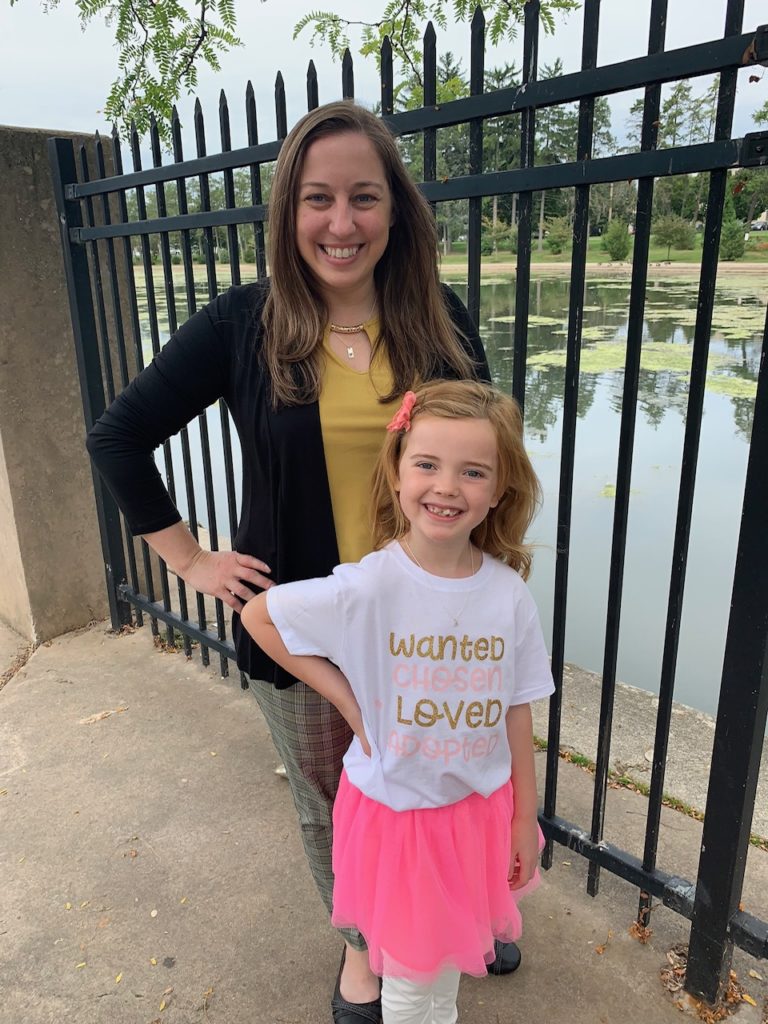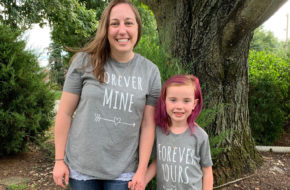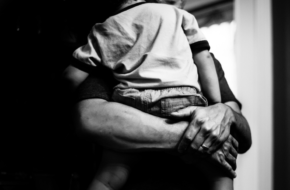In this post, Lydia Carfagno, an adoptive parent, shares her difficult two-year journey that led to one of the greatest joys of her life—motherhood. She adopted her now-4-year-old son, Trevor, through Diakon Adoption & Foster Care’s legal-risk (foster-to-adopt) program. Legal-risk placements involve children and youths who are in the custody of a county’s children and youth services. Children are placed in foster homes with the intent of reuniting them with their birth families; however, if that does not occur, the foster family often seeks to adopt the child or youth.
Why Foster-To-Adopt?
As I was growing up, my mother worked and volunteered at a crisis pregnancy center. As a small child, I witnessed my mother counseling women and providing them with the necessary resources to maintain their pregnancy. When I was young, I would tell my mother that I wanted to grow up and take care of babies that did not have mommies and open my own orphanage. I remember frequently checking our front door to see if someone left me a baby to care for!
Fast forward: I grew up and obtained a college degree in recreational therapy. As a therapist, I worked in various pediatric hospitals. Throughout my work experience, I witnessed firsthand many children suffering from neglect, abuse and trauma. Each of these children made my desire to adopt grow even stronger; however I knew I was not currently in the position to do that.
Upon marrying, adoption was something we always said we would do “one day.” We struggled to get pregnant and even experienced a life-threatening ectopic pregnancy. The topic of adoption that was once on the back burner quickly became a burning desire in my heart.
It was something I believed had to happen immediately. Because of my experience in the health-care field, I was aware of “foster-to-adopt” type programs and I quickly began researching agencies.
Why Diakon?
In March 2015 we decided to take the leap into fostering and adopting. The only thing left to do was pick an agency. A lot of prayer and discussion went into our decision to begin this journey.
We had just started attending a new church. The Sunday after we made our decision, the message was about foster care and adoption. Numerous families shared their journeys that morning. My husband and I felt as if God was truly speaking to us and giving us the extra push that we needed.
As I was leaving church, I went to grab my coat off the coat rack; directly above my coat was a flyer for Diakon Adoption & Foster Care.. I pointed it out to my husband and we both took it as God pointing us in the direction we needed to go. We went through Diakon’s training sessions in April and May 2015, completed our home study in June 2015 and Trevor was placed with us in September 2015.
What was it like the moment you first saw your son?
On Sept. 18, 2015, we made the best, yet scariest, decision of our lives. My husband and I were both at work when we received a phone call from the agency regarding an emergency placement. The phone call came around 12:30 p.m. We both rushed out of work to attempt to prepare ourselves for Trevor’s arrival, but all we really did was pace until Trevor arrived in our driveway at 3 p.m. in the children and youth worker’s vehicle. As they pulled in, we could hear Trevor in the back attempting to talk. It was evident right away that he had some speech delays.
My first glimpse of him, I thought: “Wow, you’re a big guy, yet so unhealthy-looking.” We were advised by the caseworkers that we should bathe him immediately. Trevor was immediately captivated by our pets and the few toys we had. I quickly coaxed him into the bathtub, which I ended up draining and refilling three times. We had to stop him from drinking the bath water and sucking water out of the wash cloth. This is also when we discovered bedbug bites all over his little body.
Although appearing confused, Trevor engaged with us immediately. He had absolutely no verbal language skills and resorted to pointing and gesturing his wants and needs. After bathing him, we dressed him (I had some 18-month clothing) and went to a department store.
I remember on the drive there thinking, “What have we gotten ourselves into?” We knew absolutely nothing about this little human. We had no idea what he liked, disliked or feared. We didn’t even know his medical history or if he was allergic to anything. We wandered through the store for about an hour-and-a-half putting anything he pointed to in the cart. As “crazy” as it probably looked to others, it all felt perfectly right.
What health obstacles did Trevor face?
It quickly became apparent that Trevor had social-emotional, developmental and health concerns. Some were easily noticeable to the lay person; however, coming from the medical field, I knew there were deeper underlying neurological challenges.
Our first obstacle to tackle was Trevor’s limited communication. He would become terribly frustrated (rightfully so) when he was not able to express himself. We immediately started teaching him basic sign language. We also set up evaluations with Early Intervention, pediatricians and various other specialists.
In addition to Trevor’s developmental delays, he had asthma (which had gone untreated) and required multiple surgeries because of medical neglect. Trevor’s days were quickly filled with various doctor and therapy appointments. Trevor made tremendous gains medically and developmentally once he was receiving all the needed services.
What prepared you for Trevor’s health issues?
As teens and young adults, my husband and I worked with individuals with special needs.
It quickly became apparent that God was using these experiences to prepare us both (years later) for Trevor. Not only did we have some experience, but our support system also did. My mom and my husband’s parents are special education teachers. This is not to say we knew exactly what we were doing. There was still a lot to learn, and a lot of scary, uncertain times. Again, this is when our faith came in to play. Trevor had his own prayer team of more than 100 people praying for him daily.
How did you cope with biological family visits?
Visits with Trevor’s birth family were definitely the most difficult part of our journey. We made a point of communicating with them as much as possible. At the start of this process, both of Trevor’s birth parents were incarcerated. Initially, Trevor visited them in jail every other week.
Once they were no longer incarcerated, Trevor visited with them at a supervised location and then eventually visits became unsupervised. This was particularly difficult as we had very little information as to what was occurring during visits. We created a communication book that we would write to one another in.
Unfortunately, Trevor’s birth parents were unable to provide stable caregiving. As with all children in foster care, the county sought other biological family members as a resource for Trevor. This process was terribly difficult because we had become so bonded with Trevor, and he was terrified to leave us. Our Diakon caseworker, the various health professionals Trevor saw regularly and Trevor’s prayer team were our support and advocates.
What is your best advice for someone looking to foster-to-adopt?
Almost everyone we come in contact with has made the statement, “I could never do what you are doing”’ or “You are better than me; I could never do what you are doing because I would get too attached.” Initially, it was difficult to find a response to statements like this.
Now, I typically respond with “I never said I could do it, but I said I would do it.” I am constantly reminding myself that God does not call the equipped; He equips those who are called. This journey has been one of the most terrifying and challenging experiences of my life. We fought for Trevor’s best interests for 689 days.
We were assigned this mountain to show others that it can be moved.
I know there are other men and women out there who have a deep desire to foster and adopt. Do not let fear and uncertainty stop you from fulfilling your calling. These children need love more than anyone’s need to protect his or her heart. No one should be afraid to grieve. What they should be afraid of is what happens to these children if no one takes the risk to love them.
Do you have any regrets?
Was our journey easy? Absolutely not! The past two years have been long, messy, hard and filled with grief. However, the day Trevor came into my life I knew what my purpose was. I promised him that day, and every day after, to love and protect him with everything I have.
Trevor has shown me a part of me that I did not even know existed. The day I became his mother (or “foster mom”) my life was forever changed. I found strength and grit inside me that I did not know was even possible. Sometimes God will put a Goliath in your life for you to find the David within you. God knew my heart needed Trevor. Trevor is without a doubt worth it all!
What does the future hold now that Trevor is officially your son?
Trevor is the most strong, brave and resilient little boy I have ever met. Although there are still a lot of unknowns in Trevor’s future because of the trauma and neglect he experienced at a young age, I truly believe he will overcome any obstacle he faces.
He entered our home a nervous, timid, unhealthy toddler and today he is full of spunk and joy. He loves to explore and experience all life has to offer. He is compassionate and intelligent and has just about everyone he meets wrapped around his little finger. The future for Trevor is limitless. God has great plans in store for him.
Trevor’s adoption occurred just recently so we are still in the process of figuring out what life is like without court, paperwork, caseworker visits and the dark cloud of the question, “will he stay forever?” hanging over our heads.
We are certainly enjoying our new forever family and cannot wait to see what God has planned for the three of us.
—Lydia Carfagno
Because we review comments, they do not appear immediately. Please do not submit each comment more than once. Please review our comment policy.












